Accounting Theory Assignment: AICPA Ethics and Accounting Practices
VerifiedAdded on 2022/09/18
|5
|697
|23
Homework Assignment
AI Summary
This assignment delves into the core concepts of accounting theory, contrasting financial and management accounting, and emphasizing the importance of ethical practices. It begins by outlining the key differences between financial accounting, which focuses on the company as a whole and provides external reports, and management accounting, which aids in internal strategic planning and budgeting. The solution highlights the American Institute of Certified Public Accountants (AICPA) and its role in establishing ethical standards for accountants, including integrity, objectivity, independence, and due care. The assignment underscores how ethical conduct is crucial for providing clients with accurate financial information, preventing conflicts of interest, and ensuring the reliability of accounting reports. The document also provides a list of references which support the concepts.
1 out of 5
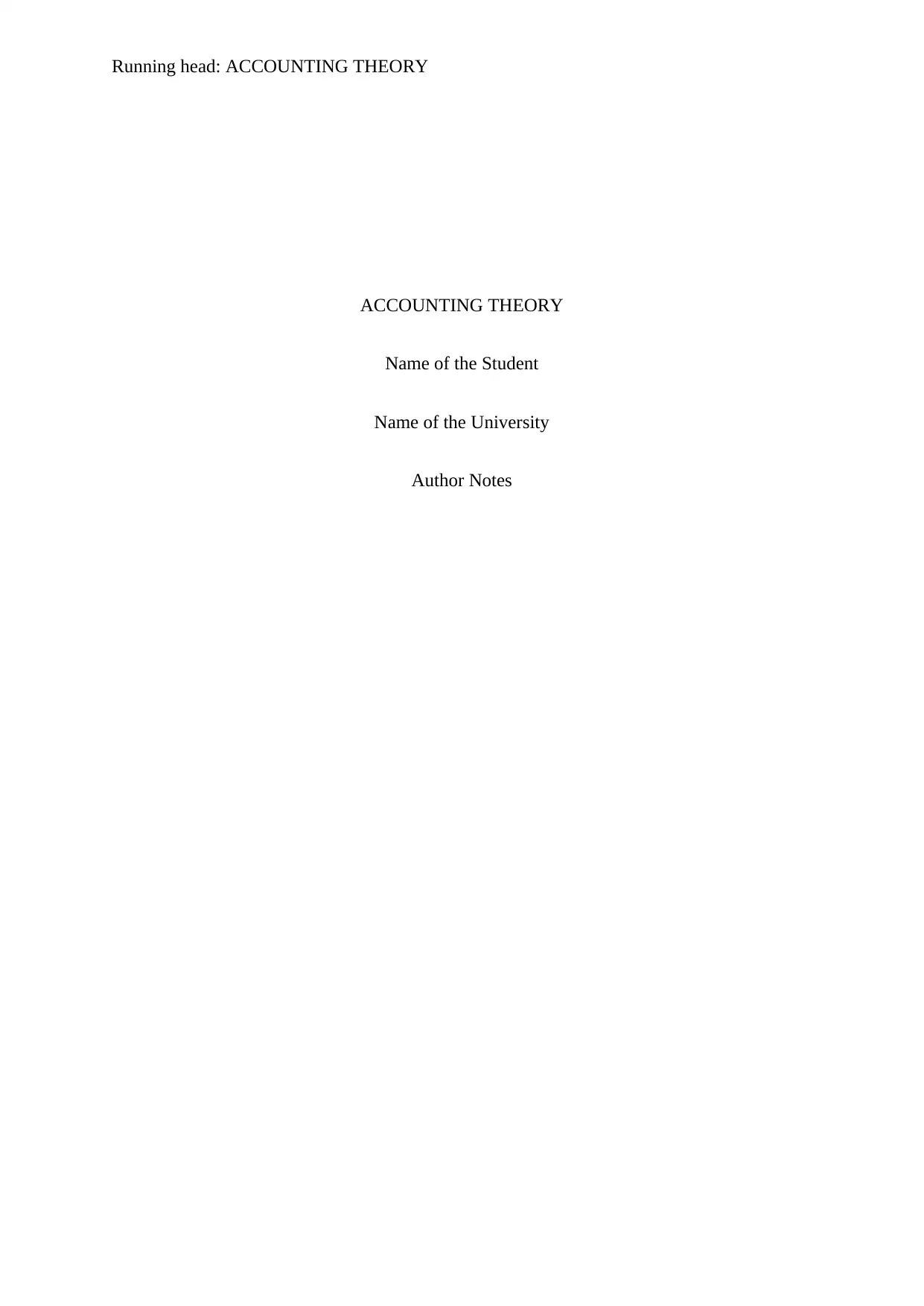
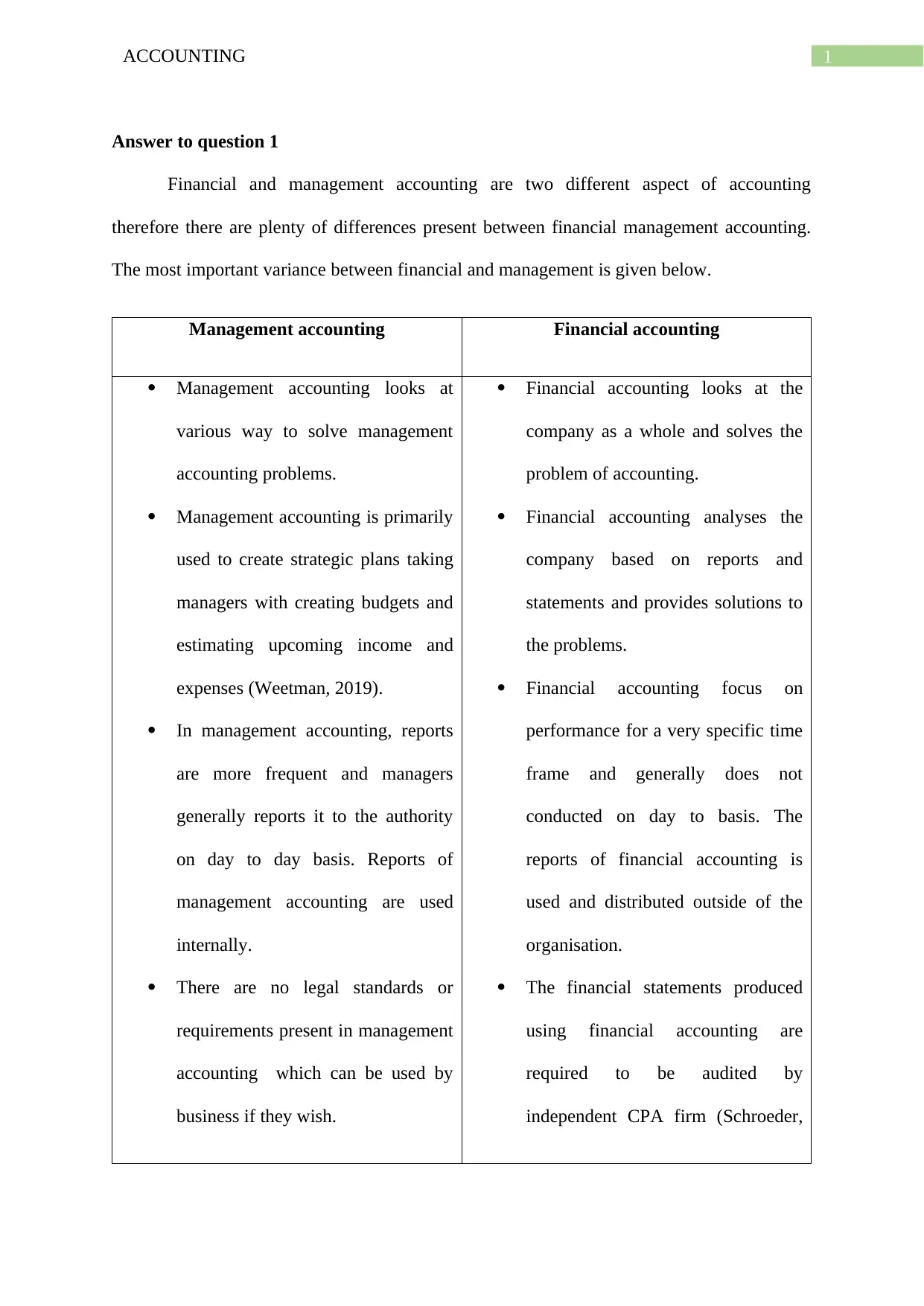
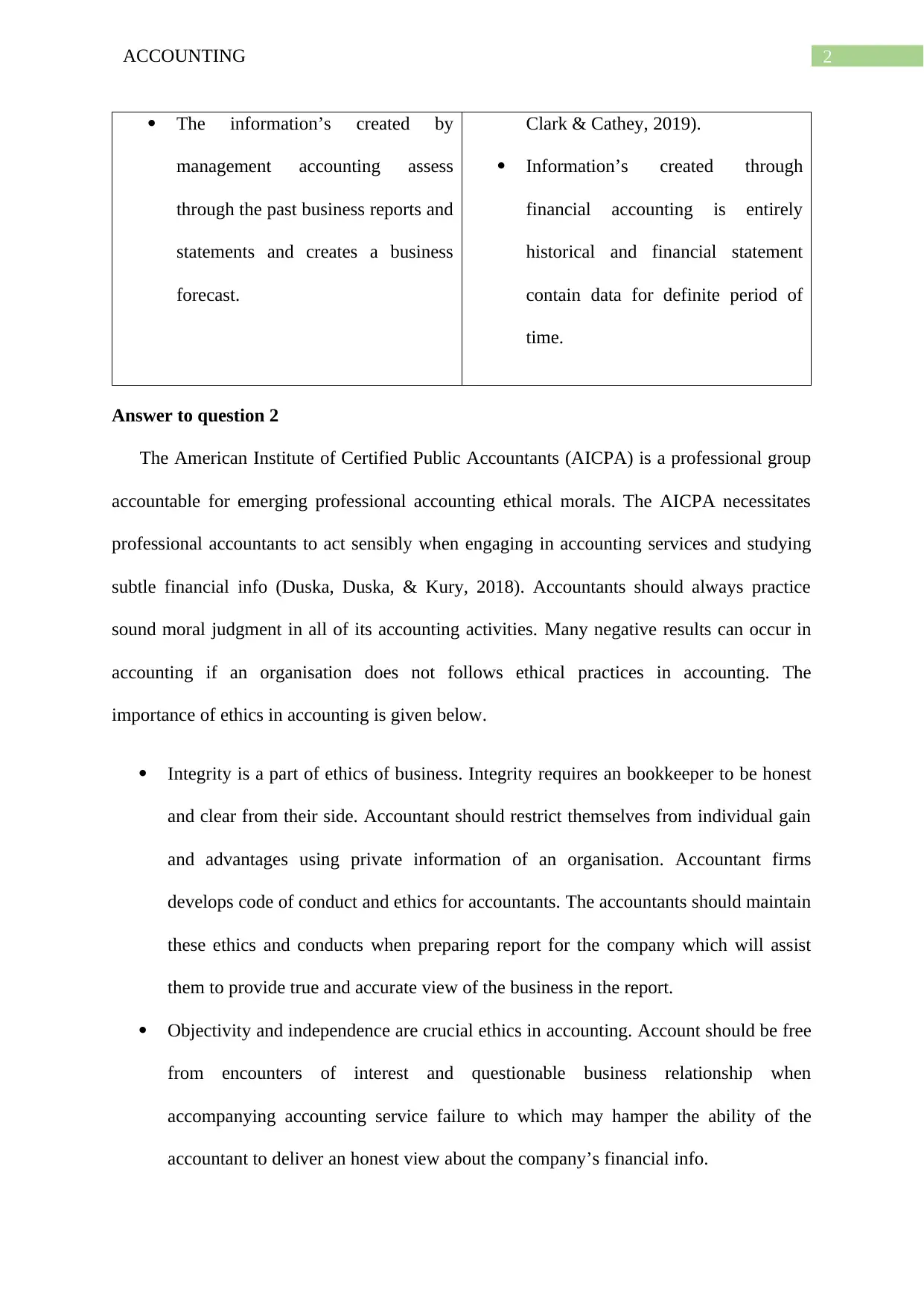

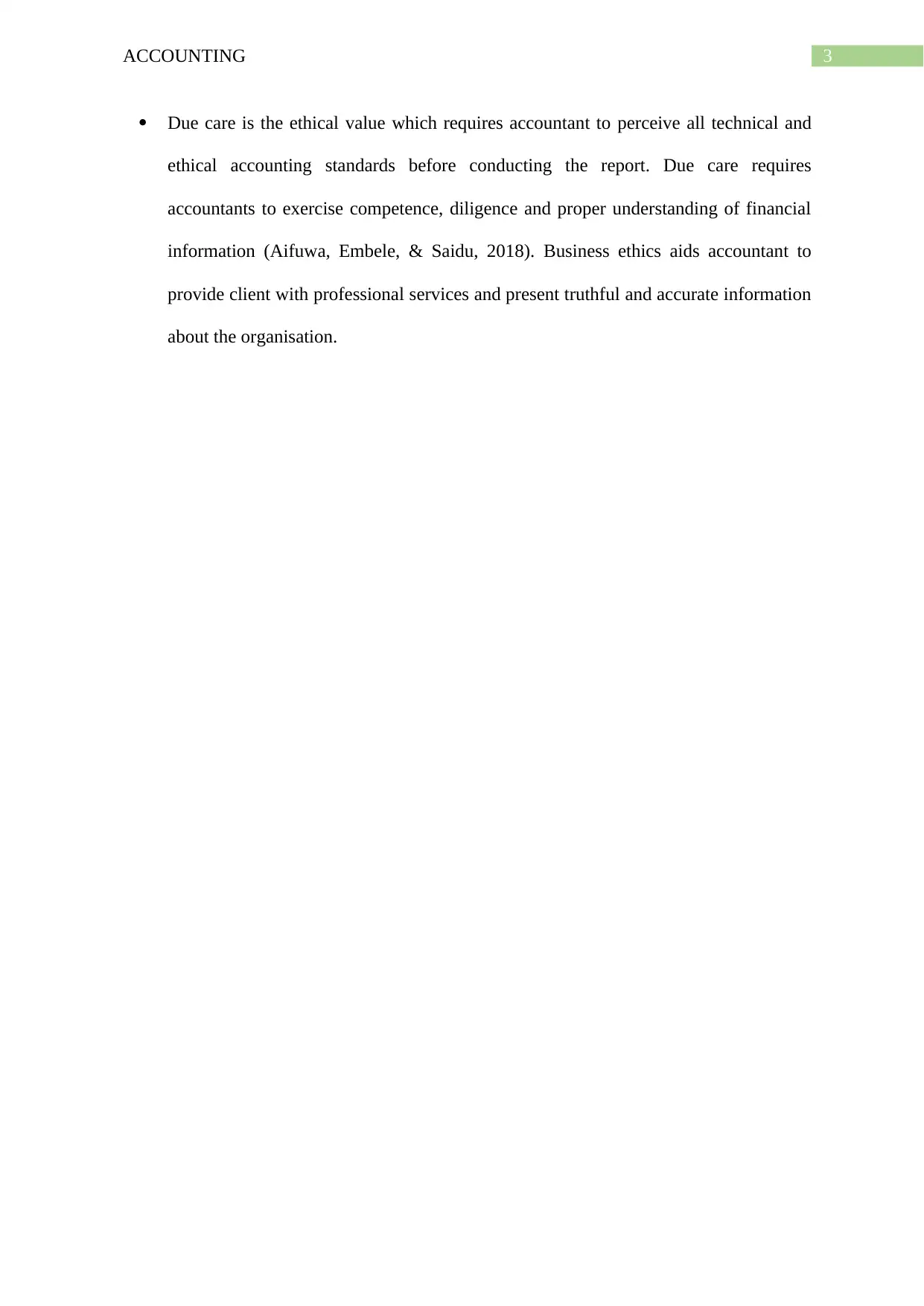
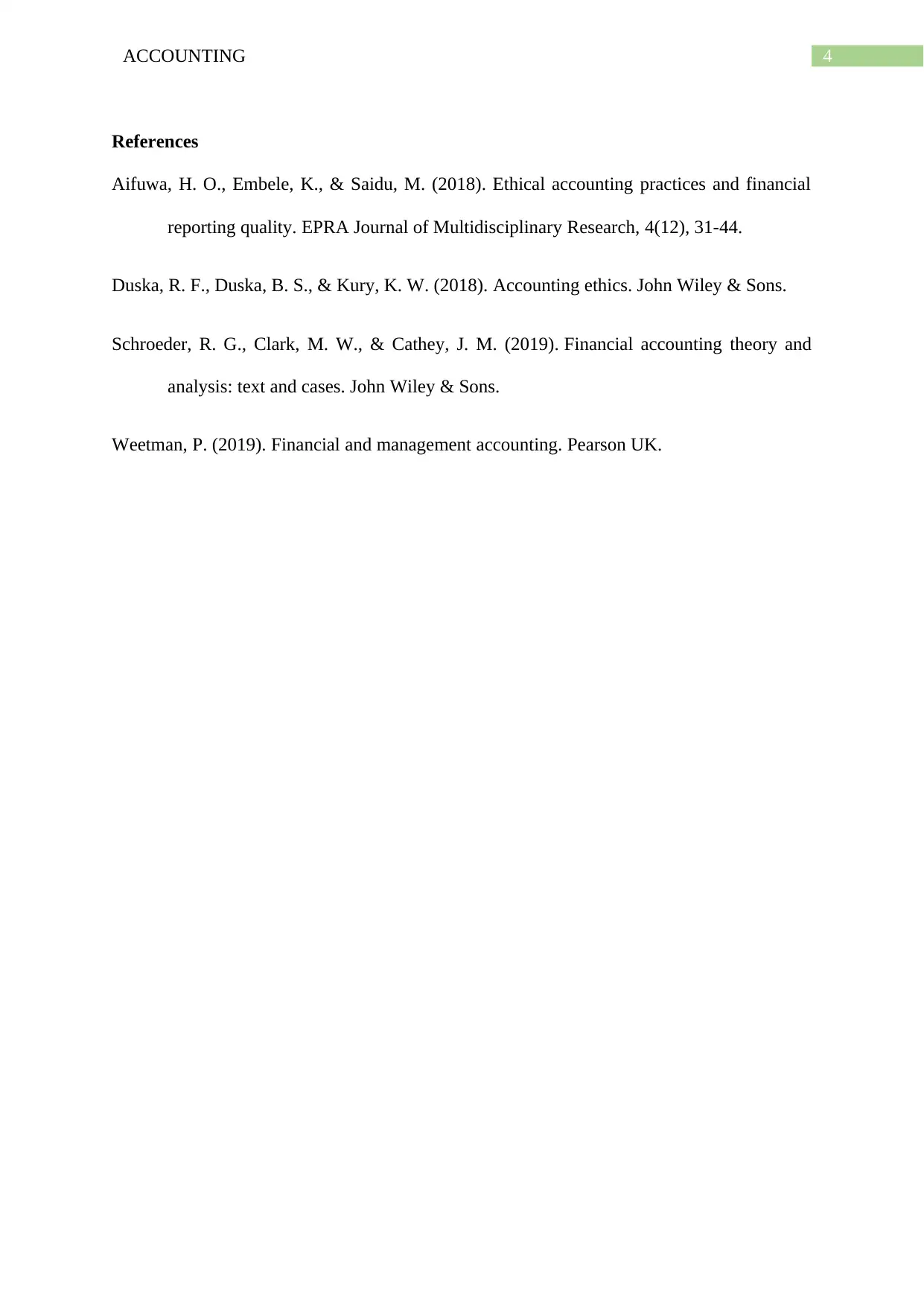





![[object Object]](/_next/static/media/star-bottom.7253800d.svg)